Spring 2023
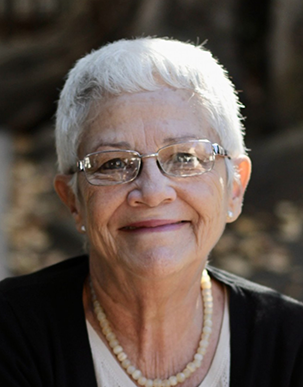
Angela Rojas is a Professor of Theory and History of Architecture and Urbanism at the Technological University of Havana. Architect, 1970, and Specialist in Urbanism, 1980. Doctor in Architecture, 1986. In 1997 attended the ITUC Course (Integrated Territorial and Conservation Planning Course) at ICCROM (International Centre for the Study of the Preservation and the Restoration of Cultural Property). Scholar at the Getty Conservation Institute, Fall 2016. She has lectured or taught as a guest professor in Cuba, Spain, Mexico, Argentina, Angola, Bolivia, Dominican Republic, Italy, Canada, Barbados, the United States of America, and China. Professor Rojas’ contribution to the conservation of heritage has mainly been in Theory, History, and Urban Conservation in Cuba, Spain, and Panama. She designed a Master’s Degree Program in Territorial and Urban Conservation. Honorary Member of the International Council on Monuments and Sites, Member of ICOMOS Academy, Member of ICOMOS Scientific Committees: CIIC (Cultural Routes), CIVVIH (Historic Towns and Villages), and ICICH (Intangible Heritage). Member of Executive Committee/ICOMOS from 2002 to 2011. She is also a member of DOCOMOMO. Current research includes values and attributes in heritage, the role of influences from other cultures, and heritagization processes. She is working on a book project focused on influences and conditioning factors in architecture and urbanism.
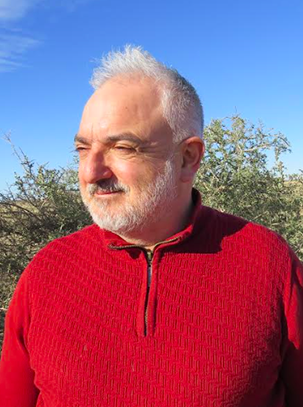
Julio Esteban Vezub is the director of the Instituto Patagónico de Ciencias Sociales y Humanas (IPCSH-CONICET) in Puerto Madryn, Chubut, and Full Professor of the History Department of National University of the Patagonia (UNPSJB). His main fields of research are the Native People and Patagonian History, the wars of expansion, and the process of the national states making in southern Argentina and Chile during the 19th century. He participates in initiatives to enhance documentary founds together with Patagonian, Argentine, Latin American, and European universities, archives, and museums, as well as restitution processes of anthropological collections, that originated in colonial contexts. In collaboration with archaeologists and geographers, he traveled by the antique Patagonian routes through the Andes, interpreting the landscapes as a historical source. He participates in current discussions about the conflicts between Mapuche organizations, landowners, and the national states. In the last years, he opened his research interests to Environmental History, including the study of extractive practices and the maritime networks that connected Patagonia with Europe and North America. He has published Valentín Saygüeque y la “Gobernación Indígena de las Manzanas. Poder y etnicidad en la Patagonia septentrional (1860-1881) (Prometeo, 2009). He is director of the collection of History books “Tanteando al elefante”, and he is coauthor with Inés Yujnovsky of La conquista ilustrada: exploraciones de Francisco Host en Salta, Mendoza, Neuquén y Chaco (1870-1887) (Editorial Sb, March 2023). Further information: https://ipcsh.conicet.gov.ar/
Fall 2022
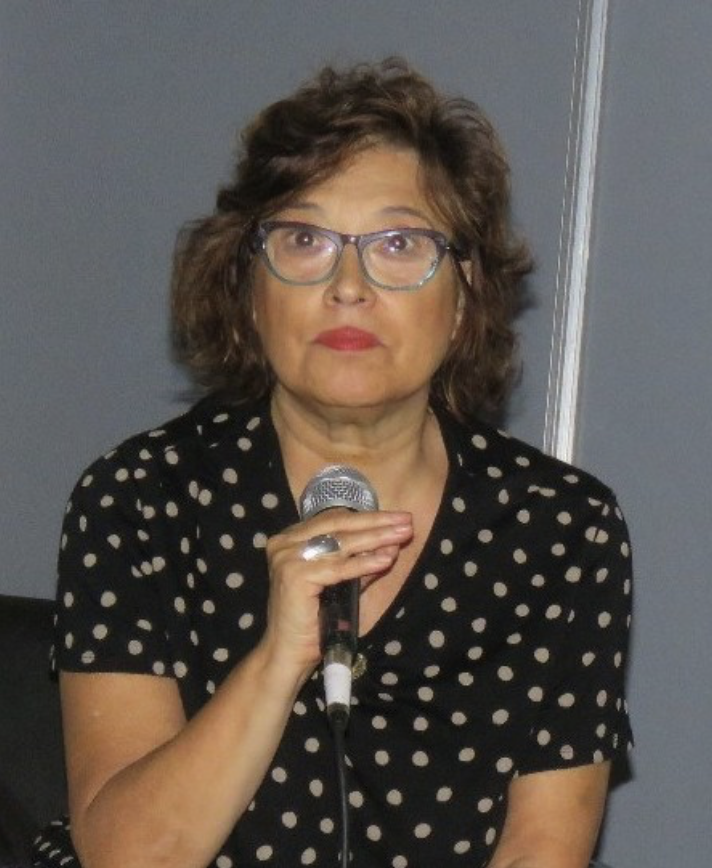
Nora Domínguez holds a PHD from University of Buenos Aires, Facultad de Filosofía y Letras where she became a full professor in Literary Theory. She was Director of the Gender Studies Centre from 2010 to 2017, where she held an important role as a researcher of Latin America Women Literature and feminist theory. She has pursued a wide variety of topics, such as the production of women writers in different national traditions and historical periods in Latin America; literary modalities in the autofiction genre; cultural and political narratives of maternity; politics of visibility in faces and facilities; gender dialogues in different national contexts and between disciplines. She was distinguished as Guggenheim Fellowship (2008) and at GEMMA. Master en Estudios de las Mujeres y Género. Erasmus Mundus, Comisión Europea (2008). She was a Visiting Professor at several universities: Duke University, Universidad de Chile, Leiden University (Netherlands), Universitat de Barcelona, and Universidad de Granada. Universidad de Oviedo (Spain), Universite de Toulouse Mirail (France), Cátedra San Martín, Hebrew University of Jerusalem (Israel) and at different national universities in Argentina. Among her works are El revés del rostro. Figuras de la exterioridad en la cultura argentina (2021) that won the Premio de Humanidades, Sección Southern Cone Studies, LASA, 2022; De donde vienen los niños. Maternidad y escritura en la cultura argentina (2007) which obtained the Segundo Premio Ensayo, Fondo Nacional de las Artes, Argentina. Now she is working on a collective and intergenerational project, "Historia feminista de la literatura Argentina" that consists of five volumes and a gender dictionary. The first volume was published in 2020.
Spring 2022
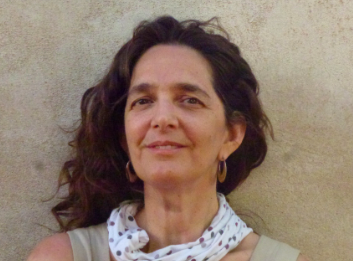
Isabella Cosse is a historian and researcher at CONICET (National Council of Scientific and Technological Research) and a professor at Universidad Nacional de San Martín, Argentina. She has written several books (including Estigmas de Nacimiento, 2006; Pareja, sexualidad y familia en los años sesenta, 2010; and Mafalda: historia social y política, 2014, also published in English as Mafalda: A Social and Political History of Latin America’s Global Comic, 2019) and other contributions where she looks at childhood and family in relation to social, cultural and political processes. She has been a Fulbright Fellow, has taught in different universities in Argentina and Latin America, and was co-founder of the Network of Latin American Childhood Historians. She is currently working on a book project entitled “Love and Politics during the Cold War,” and, as part of her Tinker Fellowship, she is participating along with Nara Milanich and Valentina Glockner in the project “Children Crossing Borders in Latin America,” under which they promoted the Infancias y Migración Working Group, a transnational and interdisciplinary team.
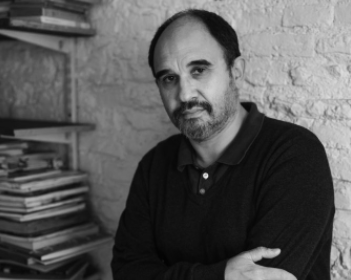
Pablo Pineau is a full professor of the history of Argentine and Latin American education at the University of Buenos Aires. He has vast experience in teacher education and training courses, and postgraduate courses in Argentine and foreign institutions including the direction of the doctorate in education at the University of Tucuman. He held the presidency of the Argentine Society for the History of Education and was director of the Department of Education Sciences of the University of Buenos Aires. He is an author and editor of several publications on history, theory, and politics of education. His main research interests are the relations between educational practices and thought in Latin America and their articulation with political, social, and cultural historical contexts.
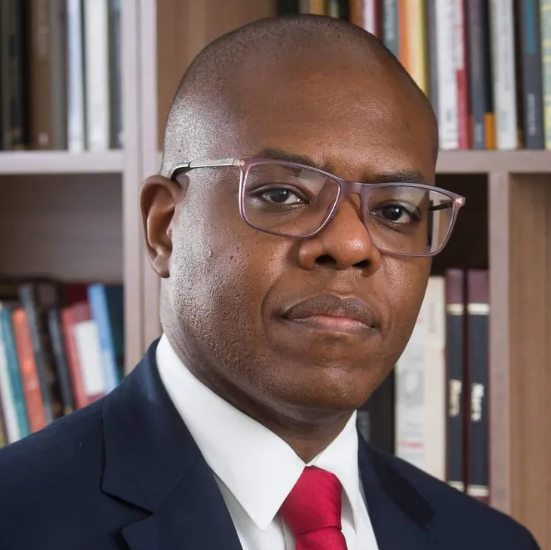
Silvio Luiz de Almeida holds a Ph.D. in Law from the Department of Philosophy and General Theory of Law at the Law School of the University of São Paulo. Master in Politics, Law, and Economics from the Law School of Mackenzie Presbyterian University. Graduated in Law from the Law School of Mackenzie Presbyterian University. Graduated in Philosophy from the Faculty of Philosophy, Literature and Human Sciences of the University of São Paulo. Obtained a postdoctoral degree at the Law School of the University of São Paulo. He was a Mellon Visiting Professor at the Center for Latin American and Caribbean Studies (CLACS) at Duke University (USA) in 2020, where he taught the courses "Black Lives Matter US and Brazil" and "Race and Law in Latin America". During his time at Duke University, he was, alongside Professor John D. French, the organizer of the exhibition "Black Lives Matter US-Brazil", the result of the academic works of the discipline of the same name taught. After his period as a visiting professor, he was integrated as a researcher at CLACS-Duke in a research project that analyzes the figure of the "Amicus Curiae" and the participation of civil society in the constitutional cases about affirmative actions in the Brazilian Supreme Court and in the American Supreme Court. His research is based on four aspects: 1) The relationship between Philosophy of Law and Economic Theories; 2) Structural Racism; 3) State and Law in Brazilian Social Thought; 4) Compliance and anti-discrimination practices. Dr. Almeida is a political columnist for the Folha de São Paulo newspaper, the most important newspaper in Brazil. He is also a lawyer and a political activist, and currently is president of the Luiz Gama Institute, an NGO dedicated to the defense of human rights. He is currently the Minister of Human Rights of Brazil.
Fall 2021
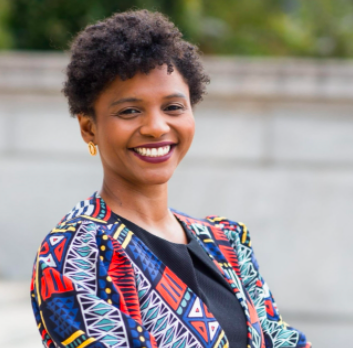
Camila Daniel is an activist-researcher in Anthropology from Rio de Janeiro, Brazil. Her research focuses on racial identities, inter-ethnic relations, dance, and immigration in Brazil, Peru, and the US. She has worked as a tenured professor at Universidade Federal Rural do Rio de Janeiro (UFRRJ) since 2010. In 2019, Camila was a visiting researcher at New York University’s Center for Latin American and Caribbean Studies (CLACS) funded by the Fulbright Commission. As a Fulbrighter, Camila conducted a collaborative work about the anti-racism activism of two art collectives from the Bronx and Baltimore. In 2016, Camila was a postdoctoral fellow at Morgan State University, Baltimore. Holding a PhD in Social Sciences from Pontifícia Universidade Católica do Rio de Janeiro, Camila is the founder of Encontro Brasil-Peru (2012, 2014, and 2019) and Seminário Internacional Latino-Afro Hispânico (SEMILLAH) (2018). She has published and presented papers in journals and conferences in Brazil, the United States, Peru, Colombia, Portugal, Argentina, and Chile. Her paper "When I discovered I was índia”: racialization processes in the migratory experiences of Peruvians in Rio Janeiro” was recently published in the Virtual Brazilian Anthropology journal. Camila is an associate researcher of Núcleo de Estudos Migratórios (NIEM) and UFRRJ’s Laboratório de Estudos Afrobrasileiros e Indígenas (LEAFRO). She is also part of Aguasalá Danzas Afrolatinas, a transnational feminist dance collective.
Spring 2020
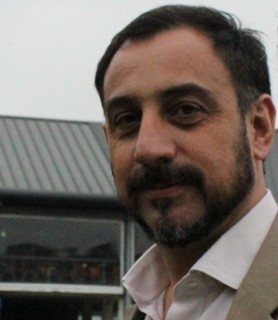
"Ricardo A. Gutiérrez is an Argentine political scientist specialized in environmental politics. He is currently a full-time researcher of the Argentine National Commission for Science and Technology Research and a Political Science Professor at the National University of San Martín. He received his Licenciatura in Political Science and his Master in Social Science Research from the University of Buenos Aires, and his PhD in Political Science from The Johns Hopkins University. His research and publications have focused on the state-society interaction in the building of environmental problems and policies. His main research topics include river basin management, poverty and environmental degradation, solid waste management, and native forest protection in Argentina and Brazil."
Fall 2019
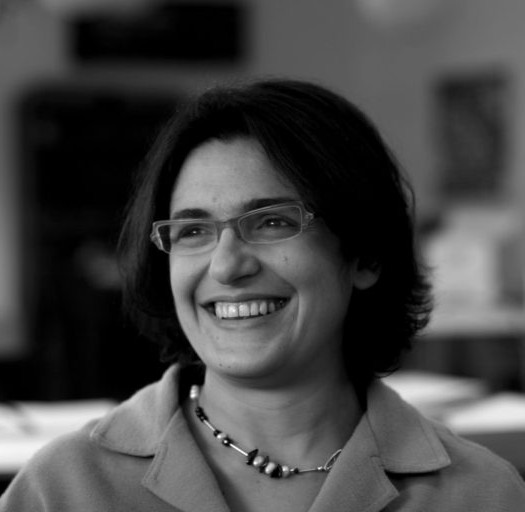
"Esther Hamburger is Professor of History of Film, Television, and Digital Media at the School of Communication and Arts of University of São Paulo. With a PhD in Anthropology from the University of Chicago, she has recently been a Visiting Scholar at Harvard University’s David Rockefeller Center for Latin American Studies. She has been a visiting professor at the Federal University of Rio de Janeiro, and at University of Michigan. She has published in a wide range of book collections including The Brazil Reader History, Culture, Politics; A companion to Latin American cinema; The Routledge’s companion to media and gender; Television audiences across the world, El cinema de lo real, Miradas cruzadas: sociedad, política y cultura. She represents her university in Unesco Media Literacy and Intercultural Dialogue University Network. She has contributed with journals such as Galaxia, Significação, Lua Nova, Novos Estudos, Television and the new media, Framework. For 15 years she wrote regularly for Folha de S. Paulo Her book O Brasil Antenado: a sociedade da novela was nominated for the Jabuti prize. She coordinates the Audiovisual Investigation and Critique Lab (LAICA), a multiuser Fapesp facility. She was director of CINUSP (the Cinema of the University). She is currently the president of Kinoforum, the Association that promotes the São Paulo International Short Film Festival, and the Kinoforum Audiovisual Workshops."
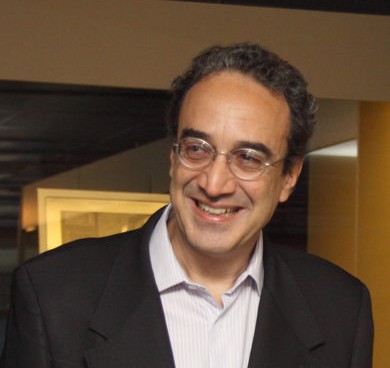
"Carlos Augusto Calil is a professor, curator, filmmaker and cultural administrator who served as: Cultural and Film Production Director, CEO of EMBRAFILME, the Brazilian State Film Company; as Executive Director of Cinemateca Brasileira (Brazilian Film Archive); as Director of São Paulo Cultural Center, and as São Paulo Secretary of Culture. Professor of Film Industry, Film Production and History of Brazilian Cinema since 1987 at the University of São Paulo, he has also eight documentaries and served as editor, photographer, and producer of several short films. He is the editor, reviewer, publishing coordinator of more than thirty books, catalogues, and author of more than 130 articles related to cinema, drama, photography and literature, devoted to writers and directors as Blaise Cendrars, Paulo Emílio Sales Gomes, Glauber Rocha, Leon Hirszman, Joaquim Pedro de Andrade, Federico Fellini, Paulo Prado, Alexandre Eulalio, Vinicius de Moraes, and Mário de Andrade. He has also been honored by the French Government with the “Officier dans l’Ordre des Arts et des Lettres” (1987), “Commandeur dans l’Ordre des Arts et des Lettres” (2009), and “Chevalier de la Légion d’Honneur” (2011)."
Spring 2019
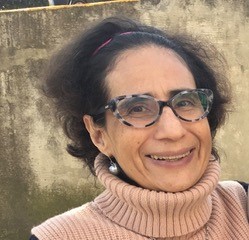
"Gabriela Cano is a historian of twentieth century Mexico. She is based in Mexico City where she is Professor at El Colegio de México. Her publications focus on the history of gender and sexualities in Mexico. She has authored Se llamaba Elena Arizmendi (Tusquets, 2010) and coauthored Amalia de Castillo Ledón. Entre las letras, el poder y la diplomacia (Ciudad Victoria, 2016). She coedited Historia de las mujeres en España y América Latina (Madrid, Cátedra, 2006) Gender, power and politics in Modern Mexico (Duke University Press, 2006). Her research has appeared in journals and edited volumes published in Mexico, the United States, Spain and Brazil. Her current interests include the history of feminism and the history of in Mexico and Latin America. She has served as director of the Gender Studies Program at El Colegio de México and has held visiting academic positions at Stanford University and Columbia University."
Fall 2018
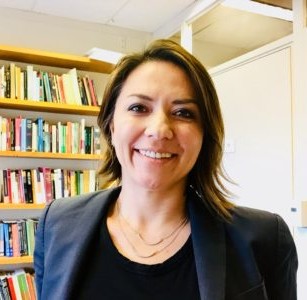
"Mónica Pachón is currently an associate professor and Dean of the School of Political Science, Government and International Relations at the Universidad del Rosario in Bogotá, Colombia. She was previously an associate professor and MPP director at the School of Government Alberto Lleras Camargo at Universidad de Los Andes (Bogotá, Colombia), director of www.congresovisible.org (2009-2013), and Fulbright visiting professor at Rice University (2013). She received her Ph.D. from the University of California, San Diego, her M.Phil in Latin American Studies from St. Antony’s College at Oxford University, and her BA and MA in political science from Universidad de Los Andes. Her research and publications have focused on executive-legislative relations in Latin American presidential systems and legislative organization, institutional design at the national and subnational level, with emphasis on the Colombian case."
Spring 2018
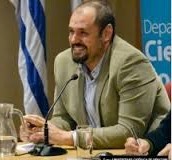
"Juan Pablo Luna. PhD. in Political Science (2006), UNC-CH. Professor Political Science, Instituto de Ciencia Política, PUC-Chile and Principal Investigator in the Millenium Nucleus for the Study of Stateness and Democracy in Latin America. His books include Latin American Party Systems (with Herbert Kitschelt, Kirk Hawkins, Guillermo Rosas, and Elizabeth Zechmeister, CUP 2010), Segmented Representation: Political Party Strategies in Unequal Democracies (OUP 2014), and The Resilience of the Latin American Right (co-edited with Cristóbal Rovira, JHUP 2014). His research has also appeared in journals such as Politics and Society, the American Behavioral Scientist, theJournal of Politics, Democratization, Latin American Politics and Society, Electoral Studies, Comparative Political Studies, the Journal of Latin American Studies, Política y Gobierno, the Revista de Ciencia Política, Third World Quarterly, and the International Political Science Review. He is currently interested in the study of democratic institutions in Latin America, political representation, the interaction between organized crime and state agents, and the interaction between socioeconomic inequality, and relevant political outcomes. He has held visiting teaching positions at Princeton University (2008), Brown University (2011), Harvard University (2013), and Sciences Po (2014). He currently serves as Associate Editor of Latin American Politics and Society and as co-editor of Cambridge’s Elements in Politics and Society in Latin America, andPalgrave’s Series on the Political Economy of Latin America. He has also co-founded REPAL (a research network on the political economy of Latin America)."
Fall 2017
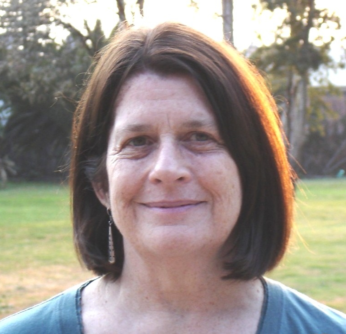
"Elsie Rockwell is a Full Professor at the Department of Educational Research of the Center for Research and Advanced Studies in Mexico since 1975. Trained in both History and Anthropology, she has conducted research in Mexico on the history of schooling and post-revolutionary state formation, policies and practices in rural/indigenous schools, and the literacy/orality matrix both within classrooms and in communities. She has advised over 30 graduate students in these lines of research. Dr. Rockwell has close relations with many Latin American anthropologists and historians of education, particularly in Argentina, Chile and Brazil, and is an active member of ISCHE and of AAA. She has also done ethnographic research with French colleagues on language instruction in Parisian schools with African immigrant children. Her current project addresses the early 20th century spread of the doctrine of “adapted” education for “indigenous” peoples. It focusses on the different interpretations this concept had in the cases of Mexico and French West Africa, while exploring the influence of Anthropology on educators, including many who studied at Columbia University and Teachers College during that period. Rockwell has published articles in various academic journals (Paedagogica Historica, Anthropology and Education Quarterly, Educação & Sociedade, Langage et Société), as well as chapters in many edited volumes. Her recent books include Hacer escuela, hacer Estado: La educación posrevolucionaria vista desde Tlaxcala (Colegio de Michoacán, 2007), La experiencia etnográfica: cultura e historia en los procesos educativos (Paidós, 2009), and Comparing Ethnographies, Local Studies of Education Across the Americas, co-edited with Kathryn Anderson-Levitt (AERA, 2017). Rockwell received the INAH Clavijero Award in 2008, the CAE-AAA George and Louise Spindler Award in 2013 (shared with Hervé Varenne, of Teachers College)."
Spring 2017
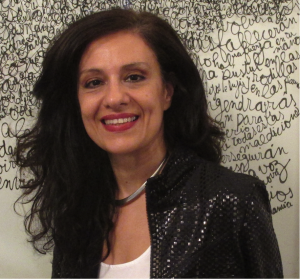
"Andrea Giunta is an art historian and curator specialized in Latin American and Contemporary Art. She received her Ph.D. from the Universidad de Buenos Aires, Argentina, where she is Professor of Latin American art at the Facultad de Filosofía y Letras. She is also Principal Researcher of the CONICET, National Research Council, Argentina. She held the Chair in Latin American Art History and Criticism at the University of Texas at Austin, where she was also the founding Director of the Center of Latin American Visual Studies (2008-2013). Giunta is the recipient of several awards, including the Guggenheim, the Getty Foundation, and the Rockefeller Foundation Fellowship. She was distinguished with the Donald D. Harrington Faculty Fellowship, University of Texas at Austin. Different universities have recognized her work with invitations as a keynote speaker (Harvard, University of Chicago, Berkeley, New York University, Chicago Art Institute, Columbia University, EHESS, Paris). She delivered lectures at museums like MoMA, Reina Sofía, Getty Institute, MFAH, Malba, Pinacoteca de São Paulo, MUAC-UNAM, etc. Among her books are Verboamérica(2016, together with Agustín Pérez Rubio); When Does Contemporary Art Begin? (2014); Escribir las imágenes. Ensayos sobre arte argentino y latinoamericano (2011); Objetos mutantes. Sobre arte contemporáneo(2010); Poscrisis. Arte argentino después del 2001(2009); El Guernica de Picasso: el poder de la representación. Europa, Estados Unidos y America Latina (2009); Avant Garde, Internationalism and Politics. Argentine Art in the Sixties (2007, 1rst Spanish edition 2001)."
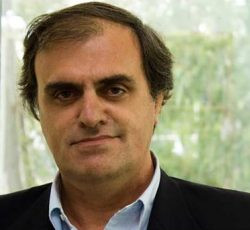
"Eduardo Zimmerman received a Law Degree from the University of Buenos Aires and a D.Phil in Modern History from the University of Oxford. He has been a Junior Research Fellow at the Institute of Latin American Studies, University of London; a Visiting Fellow at the Kellogg Institute, University of Notre Dame, and a Visiting Professor at the Department of History, Paris I, Panthéon-Sorbonne. He was awarded the Premio Ensayo Histórico La Nación 120 Aniversario, Buenos Aires, and is a fellow of the Argentine National Academy of History. His research focuses on 19th and 20th centuries-Latin American history, particularly on state building processes, legal and political history, and the history of political thought in the region. Among his publications are the following books: Los liberales reformistas. La cuestión social en la Argentina, 1890-1916 (1995); (ed.), Judicial Institutions in Nineteenth-Century Latin America (1999); (co-ed.): Los saberes del estado (Buenos Aires: Edhasa, 2012); Las prácticas del estado (2013); Las fuerzas de guerra en la construcción del estado. América Latina, siglo XIX (2013). He is currently Associate Professor and director of the Department of Humanities at the Universidad de San Andrés, Buenos Aires."
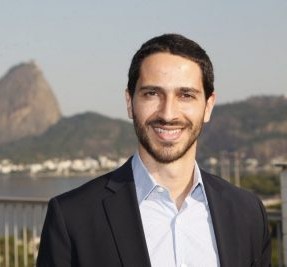
"Ronaldo Lemos is an internationally respected Brazilian scholar and commentator on technology, intellectual property, and culture. He is a director of the Institute for Technology & Society of Rio de Janeiro (ITS Rio) and professor of law & innovation at the Rio de Janeiro State University (UERJ). He holds law degrees from University of Sao Paulo Law School and Harvard Law and has published a number books and journal articles. He has served as the Project Lead of Creative Commons Brazil since 2003. He is a non-resident visiting scholar with the MIT Media Lab and was a Visiting Fellow at Princeton University´s Center for Information Technology Policty (CITP) in 2011 and 2012. Lemos is a founder of Overmundo, for which he received the Prix Ars Electronica Golden Nica in the category of digital communities. Lemos was one of the creators of the Marco Civil, a law enacted in 20014 regulating the Internet in Brazil protecting civil rights, privacy and net neutrality. He is a member of the Council for Social Communication in Congress, a governmental body created by Brazilian Constitution to deal with matters related to communication, media and freedom of expression. Lemos writes weekly to Folha de S.Paulo, the largest national newspaper in Brazil. He hosts a TV show focused on innovation at Globonews, a cable news channel, and has contributed to a number of other publications, including Foreign Affairs, Harper’s Bazaar, and Bravo!. In 2015 he was appointed a “Young Global Leader” by the World Economic Forum. In 2016 he was appointed a fellow with Ashoka. Dr. Lemos serves as a board member in various organizations, such as the Mozilla Foundation, and Access Now."
Fall 2016
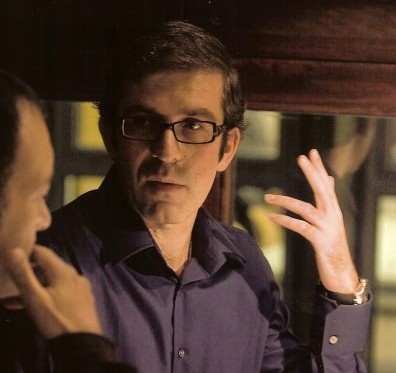
"Domingo Sánchez-Mesa Martínez (B.A. 1990, PhD 1995 UGR) is a full Professor in Literary Theory and Comparative Literature at the University of Granada (UGR). He has published on the following research areas or topics: a) contemporary Literary Theory (articles and chapters on Mikhail Bakhtin´s thought and work and the book Literatura y cultura de la responsabilidad, Granada, Comares 1999); b) XXth cent. Spanish Narrative & Poetry (articles on Francisco Ayala or Enrique Vila-Matas, the book Cambio de Siglo. Antología de poesía española 1990-2007, Hiperión 2007); c) intermediality & transmediality (articles on adaptation theory: literature-cinema-videogames), d) otherness in literature & cinema (he coordinates a Project on “Images of Immigration” at UGR) and e) cyberculture and e-literature (Literatura y cibercultura, Arco Libros 2004).
He is the academic coordinator of the Spanish MEC Research Project Nar-Trans (“Narrativas Transmediales”, 2014-2017) and member of Hermeneia research group. He has been a visiting professor at UMass Amherst (fall 2012) and guest lecturer abroad at CUNY (Graduate Center), KULeuven (Be), Beijing-Beida (Ch) or Passau (Ge), among other universities. He is also guest lecturer at various postgraduate programs in Spain: Cinema & Television Script Writing (Carlos III Univ. Madrid), Comparative Literature (Universitat Barcelona), Comparative Literature & Cultural Studies (Santiago de Compostela) and Cinema Studies (Córdoba Univ.). As academic manager, he was the director of the Spanish Language & Culture Courses of the International University Menéndez Pelayo (UIMP, Santander 2001-2005), Supervisor of the Undergraduate Program in Audiovisual Communication at UGR (2010-2015), and currently he is the Supervisor of the Master on “Interactive Audiovisual Media & Multimedia Journalism” (Faculty of Communication & Documentation UGR)."
Spring 2016
"Javier Garciadiego has taught at the UNAM and at the Instituto Tecnológico Autónomo de México (ITAM), but has been most active as a professor at El Colegio de México. He has been a Visiting Professor in a number of universities worldwide, such as Chicago, Florence, and Dublin, and several in Spain (Autónoma de Madrid, Complutense, Salamanca, and Instituto Universitario Ortega y Gasset). He has lectured, among others, at the universities of Brown, Chicago, Harvard, Princeton, Stanford, Yale, The Sorbonne, Cambridge, Oxford, Paris, Berlin, Bonn, Cologne, Hamburg, Leipzig, Vienna, Madrid, and Athens, as well as in Brazil, Buenos Aires, Bogota, Caracas, Havana, Montevideo, Quito, and Santiago, and in the Hebrew University of Jerusalem. He has served as Director of the Center for Historical Studies at El Colegio de México (1995-2001) and Director-General of the National Institute of Historical Studies on Mexican Revolution (2001-2005). From September 2005 to September 2015, he has held the office of President of El Colegio de México, where he has been a professor-researcher since 1991."
"Gabriel Kessler has a PhD in Sociology by the Ecole des Hautes Etudes en Sciencies Sociales (EHESS). He is Professor of Sociology at the Universidad Nacional de La Plata (UNLP), head researcher at Conicet –Consejo Nacional de Ciencia y Tecnología- Argentina (Argentine National Council of Science and Technology), and Associate Fellow at the Centre d’Etude des Mouvements Sociaux of the EHESS, France. His research has dealt with social issues, public policies and violence, as well as exploring the effect of middle classes, impoverishment, education experiences throughout different classes, the effects of unemployment, youth violence, fear of crime and the relationship between death and politics. His works focus on Argentina and other Latin American countries, and his concern for a regional Latin American approach led to his membership in numerous networks and research programs from the region as well as US, Canada and Europe-based projects. These lines of work pose academic relevancy while also striving to contribute with solutions to Latin American social issues. He has published 15 books and over 90 papers worldwide, and has been a Lecturer and Visiting Professor in several universities around the world. In 2015 he was a visiting lecturer at Université de Fribourg in Switzerland and at the EHESS."
Fall 2014
"Rafael Alarcon Acosta is research professor in the Department of Social Studies at El Colegio de la Frontera Norte in Mexico. He holds a Ph. D. in City and Regional Planning from the University of California, Berkeley and has been a visiting professor at the University of California, Los Angeles, the Universidad de Valencia, the Université París Diderot, París 7, and the University of California, San Diego. As a specialist on international migration, he has conducted research on the economic and social effects of migration in sending and receiving regions in Mexico and the United States, the integration of Mexican immigrants, the immigration policies regarding skilled persons and the deportations from the United States.
In collaboration with Douglas Massey, Jorge Durand and Humberto González, he coauthored: Return to Aztlan. The Social Process of International Migration from Western Mexico (Berkeley: University of California Press, 1987). More recently, with Luis Escala Rabadán and Olga Odgers Ortiz, he coauthored: Mudando el hogar al Norte. Trayectorias de integración de los inmigrantes mexicanos en Los Ángeles. (México: El Colegio de la Frontera Norte, 2012). He is also the co-editor of: Recession Without Borders: Mexican Migrants Confront the Economic Downturn, (Boulder and London: Lynne Rienner Publishers, 2011) with David Scott FitzGerald and Leah Muse-Orlinoff."
"Graciela Speranza is a professor of Argentine literature at the Universidad de Buenos Aires and teaches in the Arts Program of the Universidad Torcuato Di Tella in Buenos Aires. Her published books include Guillermo Kuitca: Obras 1982-1998 (1998), Razones intensas. Conversaciones sobre arte (1999), Manuel Puig. Después del fin de la literatura (2000) and two novels, Oficios ingleses (2003) and En el aire (2010). In 2002, she was awarded a Guggenheim Fellowship to work on an essay published in 2006, Fuera de campo. Literatura y arte argentinos después de Duchamp. From 2008 to 2012, she participated in the Surrealism in Latin America project at the Getty Research Institute in Los Angeles, and she edited, along with Rita Eder and Dawn Ades, the anthology Surrealism in Latin America. Vivísimo muerto (2012). Her most recent book, Atlas portátil de América Latina. Arte y ficciones errantes (2012), was a finalist for the Anagrama Essay Prize. She has contributed to the magazines Crisis, Babel and adn Cultura, and the newspapers Página/12, Clarín and La Nación. Since 2003 she is the co-editor of the magazine of arts and letters Otra parte."
Spring 2014
"Valeria Llobet received her BA in 1996 from the Universidad Nacional de Buenos Aires (UBA – Argentina) and her PhD in 2007, also in the Universidad Nacional de Buenos Aires, with a Fellowship from UBACyT. She spent a semester as a post-doctoral fellow at the Graduate Program for International Affairs (The New School) with a Fellowship from CONICET. She holds a position as researcher in CONICET (National Council of Scientific and Technological Research) since 2007, specialized in Children’s Rights and Social Policy, and is Professor of Human Rights in the Universidad Nacional de San Martin (Argentina). She was a visiting professor in several universities in Latin America. She has several publications on Children’s Rights and Politics, among them Sentidos de la exclusión social. Beneficiarios, necesidades y prácticas en políticas sociales para la inclusión de niños y jóvenes (2013, Buenos Aires: Biblos), ¿Fábricas de niños? Instituciones y políticas para la infancia en la era de los derechos (2010, Buenos Aires: Noveduc), and Pensar la Infancia desde América Latina. Un estado de la cuestión (in press, CLACSO)."
Spring 2013
"Vania Markarian is from Uruguay. She received her BA from the Universidad de la República (Montevideo, Uruguay) in 1996. In 2003, she completed her PhD at Columbia University. Afterwards, she spent a semester as a post-doctoral fellow at the International Center for Advanced Studies (New York University) and taught at Queens College (City University of New York). She moved back to Montevideo in 2004 and currently works at the Universidad de la República. She was a visiting professor and research fellow at Princeton University in 2008. She has several publications on Latin American contemporary history, among them the book Left in Transformation: Uruguayan Exiles and the Latin American Human Rights Networks, 1967-1984 (New York: Routledge, 2005), which was also published in Spanish as Idos y recién llegados: La izquierda uruguaya en el exlio y las redes transnacionales de derechos humanos, 1967-1984 (Mexico City: Correo del Maestro and CEIU, 2006). Her latest book is El 68 uruguayo: El movimiento estudiantil entre molotovs y música beat (Buenos Aires: Universidad Nacional de Quilmes, 2012)."
Fall 2012
"Gabriel Negretto is an associate professor of Political Studies at the Centro de Investigación y Docencia Económicas (CIDE), Mexico City. He holds a Law degree from the University of Buenos Aires, and both a Master of International Affairs with specialization in Latin American Studies and a PhD in Political Science from Columbia University. He has been visiting associate professor at the University of Notre Dame, Princeton University, The New School for Social Research, Universidad de la República de Uruguay, and Universidad Torcuato Di Tella. Negretto specializes on constitutional politics, institutional change and design, and Latin American political institutions. He has published numerous articles on these topics in American, European, and Latin American academic journals such as the Journal of Politics, British Journal of Political Science, Law & Society Review, Comparative Political Studies, Latin American Politics and Society, Journal of Latin American Studies, European Journal of Sociology, Government and Opposition, and Desarrollo Economico, among others. His most recent work is the book Making Constitutions. Presidents, Parties, and Institutional Choice in Latin America, forthcoming in Cambridge University Press. Professor Negretto recently published a book titled “Making Constitutions: Presidents, Parties, and Institutional Choice in Latin America (New York: Cambridge University Press, 2013). Please click here for reviews and more information."
"Juan Antonio Morales is full Professor and Senior Researcher at the School of Economic and Financial Sciences at the Catholic University of Bolivia, where he returned after beingpresident of the Central Bank of Bolivia. His tenure as president, from 1995 to 2006, was the longest in the history of the Central Bank of Bolivia since its creation in 1928. Dr. Morales had been visiting professor in several European, American, and Latin-American universities. Mr. Morales has written over forty scientific books and articles. He also contributes regularly to the Bolivian press.He obtained his Master´s and Doctor´s Degree in Economics at the Catholic University of Louvian – Belgium in 1967 and 1971 respectively. He is fluent in Spanish, English and French."
Spring 2012
"Ernesto Talvi is the Academic Director of CERES (Center for the Study of Economic and Social Affairs). He is a special advisor to the Research Department of the Inter-American Development Bank (IADB) on global and regional macroeconomic and financial affairs, contributing to the policy dialogue and the development of cross-country research work at the IADB’s Research Department. Professor Talvi was Senior Research Economist at the Research Department of the Inter-American Development Bank in Washington, D.C., between 1995 and 1997 and visiting scholar at the Research Department of the International Monetary Fund, and was the Chief Economist and Head of Research of the Central Bank of Uruguay between 1990 and 1995. During that period he was the chief advisor to Uruguay’s economic team (integrated by the Minister of Finance, the Governor of the Central Bank and the Director of Planning and Budget) and was in charge of the negotiations with the International Monetary Fund (IMF). His areas of expertise include Emerging Markets Macroeconomics with special emphasis in Latin America; stabilization programs; fiscal policy; capital flows and financial crises."
Fall 2011
"Fabio Sanchez-Torres is a Professor of Economics at the Universidad de los Andes in Bogota, Colombia. He has an extensive career working for institutions such as FEDESARROLLO, the main think tank on economic issues in Colombia, where he worked as a researcher. He has also worked as the head of the macroeconomic unit at the National Planning Department of Colombia, and as the Director of the Center for Economic Development Studies (CEDE). Dr. Sánchez-Torres has done top research on the links between equity and macroeconomic issues, social policy and violence, and economic history, including his Ph.D. thesis on the effects of the Great Depression in Colombia."
"Andres Velasco is a renowned Chilean economist and the former finance minster of Chile. He has held many advisory positions for the governments of Chile, the Dominican Republic, Ecuador, El Salvador, Mexico and Kazakhstan. Dr. Velasco has held visiting positions at Harvard University, and the University of Chile, and he is a frequent visiting scholar at the Research Department of the Inter-American Development Bank, the World Bank, and the Inter-American Development Bank. He has received several distinctions, such as the Award for Excellence in Research granted by the Inter-American Development Bank, in recognition for his contributions to economic research, the design of policies, and the creation of research institutions in Latin America and the Caribbean."
Spring 2011
"Mariano Tommasi joins ILAS from Universidad de San Andres in Argentina, where he is Professor or Economics. He specializes in political economy and institutional economics and politics, with a focus on developing countries. Prof. Tommasi has held visiting positions at Yale University, Harvard University, Tel Aviv University, and UCLA. He is a frequent visiting scholar at the Research Department of the Inter-American Development Bank. He was President of the Latin American and Caribbean Economic Association (2004-2005) and a Guggenheim Fellow (2006-2008)."
Former Tinker Visiting Professors since 2000
2010-2011
- Rafael Dobado - History - Spain
2009-2010
- Aloisio Araujo - Economics - Brazil
- Ricardo Salvatore - History - Argentina
2008-2009
- Roberto Gargarella - Constitutional Law - Argentina
- Juan Antonio Morales - Economics - Bolivia
2007-2008
- Lilia Moritz Schwarcz - History - Brazil
- Lila Caimari - History - Argentina
2006-2007
- Sebastian Galliani - Economics - Argentina
- Jorge Leon-Trujillo - Sociology - Ecuador
- Michael Penfold Becerra - Political Science -Venezuela
2005-2006
- Ricardo Cordova - Political Science - El Salvador
- Margarita Lopez - MayaEconomics & History - Venezuela
2004-2005
- Renato Janine Ribero - Political Philosophy - Brazil
- Mario Pecheny - Political Science - Argentina
2003-2004
- Ricardo Luna - International Relations - Peru
- Gabriel Tortella - History - Spain
2002-2003
- Raul Benitez-Manaut - International Relations - Mexico
- Rut Diamint - International Relations - Argentina
2001-2002
- Eduardo Pizarro - Political Sociology - Colombia
- Samyra Cresno - Political Science - Brazil
For a full list of past Tinker Professors at Columbia University and other universities, please see here.
